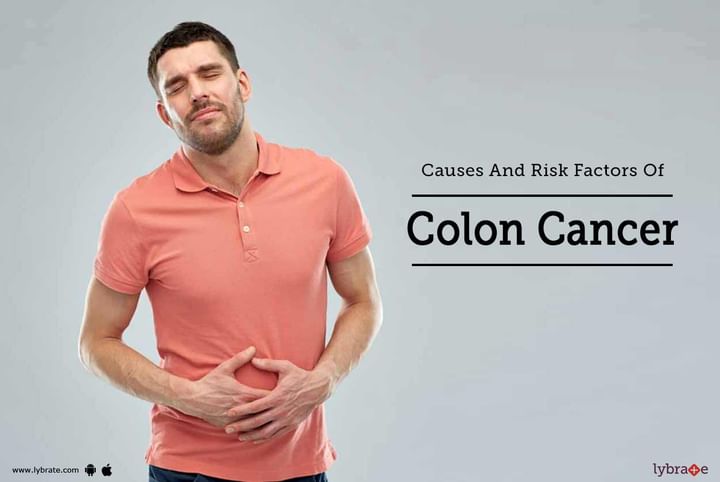Causes And Risk Factors Of Colon Cancer
Cancer in colon forms due to uncontrolled cell growth in the large intestine cells. Most colon cancers originate from the healthy cells in the lining of the colon that grow into tumors called adenomatous polyps. These polyps can be cancerous or benign. A cancerous tumor is malignant and may spread to the other parts of the body by traveling through blood and lymph systems, this process is known as metastasis. Whereas a benign tumor can grow but don’t necessarily spread to other parts of the body. It takes years for these changes to develop depending upon both genetic and environmental causes.
Causes and risk factors:
In a healthy body, the cells normally grow, divide and then die. Cancer is the result of uncontrollable cell growth where the cells do not die. Aging is one of the important risk factors for colon cancer; other risk factors include a family history of colon cancer. As per Johns LE and Houlston RS individuals with a family history of colon cancer have a high risk of developing this form of cancer as compared to those with no such history. A study conducted by Giovannucci and others in 1995, successfully established the relation between physical activity, obesity and colon cancer. As per the research lack of physical activities elevates the chance of getting colon cancer. Individuals who regularly smoke, are obese and use aspirin have a higher risk of developing this form of cancer. Diet is also an important factor, diets that are high in fat and low in fiber may elevate the risk.
Symptoms:
The symptoms of colon cancer are varied, depending upon the condition of the tumor. At the early stage, patients may experience no symptoms. However, as cancer grows, symptoms arise. Diarrhea or constipation are common; patients may see changes in stool consistency and narrower stool. Abdominal discomfort, bloating, fullness and cramps may also indicate colon cancer. Sudden weight loss and unexplained iron deficiency (anemia) are also associated with this form of cancer. If these symptoms last for several weeks, don’t hesitate to consult your physician.
Treatment:
Colon cancer is highly treatable and depends on the type and the stage of cancer along with health and other characteristics of the patient. However, there is no single treatment; the most common options are – surgery, chemotherapy and radiation therapy. The surgery for colon cancer is known as colectomy and involves removing the affected part of the colon and the adjoining areas including nearby lymph nodes. Chemotherapy involves killing the cancer cells by utilizing certain chemicals that interfere the cell division process and damage the proteins or DNA. In the radiation therapy, high-energy gamma rays are used to target and destroy the cancer cells. Radiotherapy can be used both as a standalone treatment and also along with other treatments.
In case you have a concern or query you can always consult an expert & get answers to your questions!



+1.svg)
